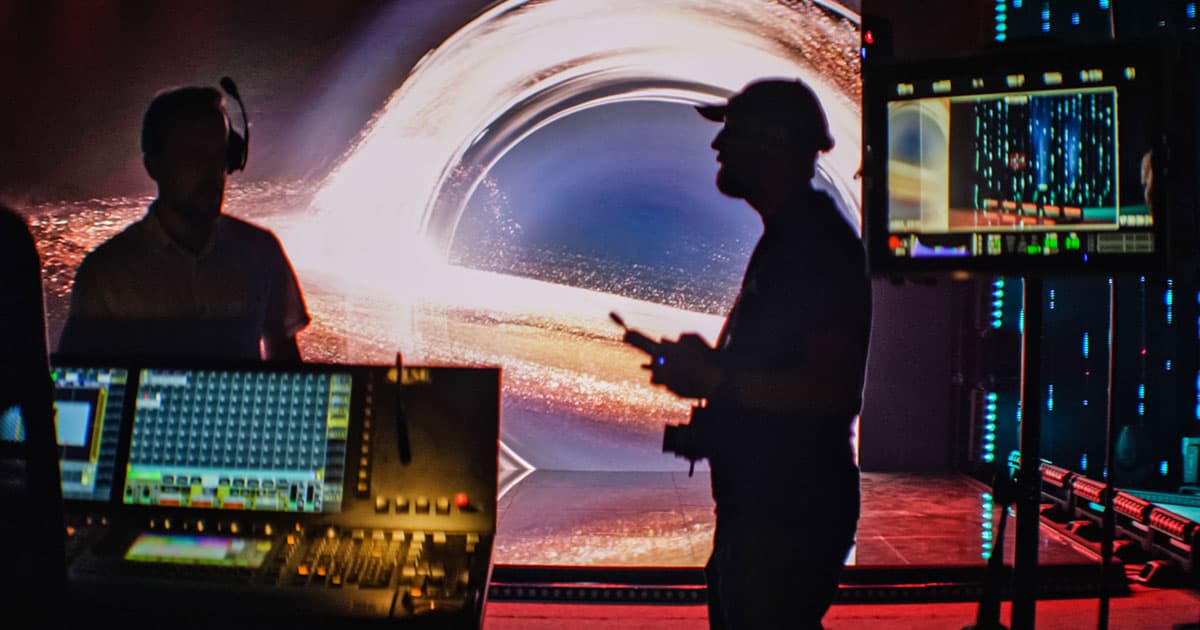It's official: the Screen Actors Guild is joining the Writers Guild of America on the picket lines by the end of Thursday, the first time that's happened since 1960.
That means much of Hollywood is effectively on strike, grinding the most influential film industry in the world to a halt.
Ever since the WGA went on strike two months ago, the conversation has often revolved around the use of AI and how it could undermine the livelihoods of both writers and actors.
And it sounds like the extent to which studio executives, represented by the Alliance of Motion Picture and Television Producers (AMPTP), wanted to leverage the tech is shocking.
During a press conference immediately following SAG-AFTRA's call for a strike earlier today, executive director and chief negotiator Duncan Crabtree-Ireland painted a dire picture of the situation.
"In that groundbreaking AI proposal," Crabtree-Ireland said, referring to the AMPTP and as quoted by CNBC, "they propose that our background performers should be able to be scanned, get paid for one day's pay, and their company should own that scan their image, their likeness and should be able to use it for the rest of eternity in any project they want with no consent and no compensation."
"So if you think that's a groundbreaking proposal, I suggest you think again," he added.
Such a proposal would effectively force human background actors to give up their physical likeness to be recreated in the form of digital projections at the discretion of the studios, a dystopian vision of the future of the film industry.
"So if an extra becomes a star they can just make a movie starring the creepy AI facsimile from all those years ago?" tweeted entertainment writer Matt Zoller Seitz. "Sneaky."
To the Guild, it's a matter of stopping studios from doing exactly that.
"SAG-AFTRA maintains that the right to digitally replicate a performer's voice or likeness to substantially manipulate a performance, or to create a new digital performance, is a mandatory subject of bargaining," reads a June letter written by the union's general counsel Jeffrey Bennett. "You cannot unilaterally impose terms in individual contracts that purport to grant these rights."
Meanwhile, per CNBC, the AMPTP has denied these reports, though studio executives have yet to directly comment on the proposal.
"We managed as an industry to negotiate a very good deal with the Directors Guild, that reflects the value that the directors contribute to this great business," Disney CEO Bob Iger told CNBC today before the strike announcement. "We wanted to do the same thing with the writers. And we’d like to do the same thing with the actors."
But it may be too late. Insider sources have told Collider that studios have already utilized technology that can replace background actors with digital avatars in upcoming movies including "Captain America: Brave New World" and Netflix's "The Residence."
According to the report, some actors allege that they weren't even given the option to opt out of being scanned, something that was contingent on their being hired.
It's a worrying sign of what's still to come. It's not just writers and editors whose jobs are being threatened, after all — the livelihoods of actors are at stake as well.
More on the strikes: Fury Erupts at Suggestion of Using ChatGPT to Replace Striking Writers
Share This Article
